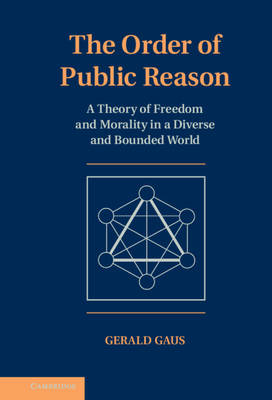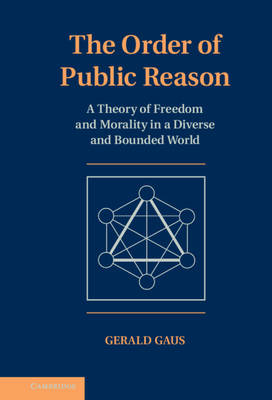
- Afhalen na 1 uur in een winkel met voorraad
- Gratis thuislevering in België vanaf € 30
- Ruim aanbod met 7 miljoen producten
- Afhalen na 1 uur in een winkel met voorraad
- Gratis thuislevering in België vanaf € 30
- Ruim aanbod met 7 miljoen producten
Zoeken
The Order of Public Reason
A Theory of Freedom and Morality in a Diverse and Bounded World
Gerald Gaus
Hardcover | Engels
€ 230,95
+ 461 punten
Uitvoering
Omschrijving
In this innovative and important work, Gerald Gaus advances a revised, and more realistic, account of public reason liberalism, showing how, in the midst of fundamental disagreement about values and moral beliefs, we can achieve a moral and political order that treats all as free and equal moral persons. The first part of this work analyzes social morality as a system of authoritative moral rules. Drawing on an earlier generation of moral philosophers such as Kurt Baier and Peter Strawson as well as current work in the social sciences, Gaus argues that our social morality is an evolved social fact, which is the necessary foundation of a mutually beneficial social order. The second part considers how this system of social moral authority can be justified to all moral persons. Drawing on the tools of game theory, social choice theory, experimental psychology, and evolutionary theory, Gaus shows how a free society can secure a moral equilibrium that is endorsed by all, and how a just state respects, and develops, such an equilibrium.
Specificaties
Betrokkenen
- Auteur(s):
- Uitgeverij:
Inhoud
- Aantal bladzijden:
- 642
- Taal:
- Engels
Eigenschappen
- Productcode (EAN):
- 9780521868563
- Verschijningsdatum:
- 13/12/2010
- Uitvoering:
- Hardcover
- Formaat:
- Ongenaaid / garenloos gebonden
- Afmetingen:
- 163 mm x 231 mm
- Gewicht:
- 979 g

Alleen bij Standaard Boekhandel
+ 461 punten op je klantenkaart van Standaard Boekhandel
Beoordelingen
We publiceren alleen reviews die voldoen aan de voorwaarden voor reviews. Bekijk onze voorwaarden voor reviews.











